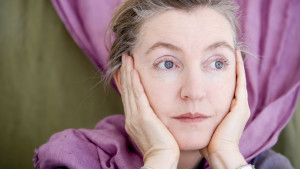Stereotypes
‘…faith, while change moves slowly along.’
March 11, 2016‘Rebecca Solnit Explains Things to Us…’
There’s this idea that political engagement is some sort of horrible, dutiful thing you do, like cleaning the toilet or taking out the garbage. But it can be the most fantastic thing you do. It can bring you into contact with hope, with joy, with a sense of deep connection, with what Martin Luther King called the “beloved community.” Disconnection from a larger sense of purpose and agency, from community and civil society, and from hope are huge factors in unhappiness.
Hating on people has never been a great form of social change, so far as we know.
I have preferences and they’re probably not that hard to guess. But with Obama, people so completely put their faith in: “Oh, we’ll elect this magic, amazing super-human and then we’ll all go home and do absolutely nothing.” The movement that put Obama in office was powerful enough to make really profound change, but everyone went home because they thought he’d do it.
That’s what you see with Bernie Sanders: this infatuation with an almost savior-like figure who will do it all. No, actually, massive grassroots movements need to exist the day after the election. Electoral politics are dismal; I’m more interested in grassroots power, popular power.
[This post originally appeared at In These Times.]
In a dispatch from Paris for Harper’s, writer and activist Rebecca Solnit called the recent climate agreement negotiated there “miraculous and horrible.” This tension between the exciting and the awful, the transformative and the terrifying, motivates her book Hope in the Dark: Untold Histories, Wild Possibilities. Initially written in response to the Iraq War, the book will be re-released this month with a new section on climate change.
Bill Moyers
http://billmoyers.com/story/rebecca-solnit-explains-things-to-us/
